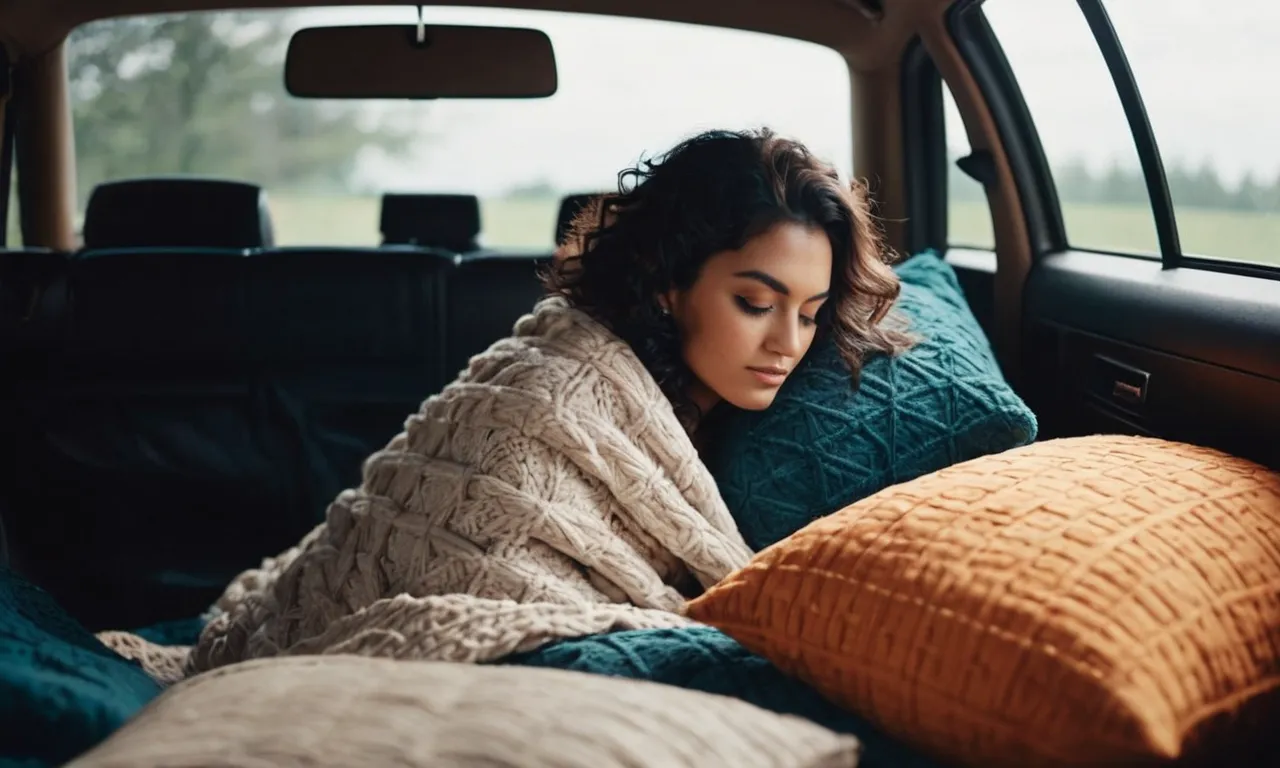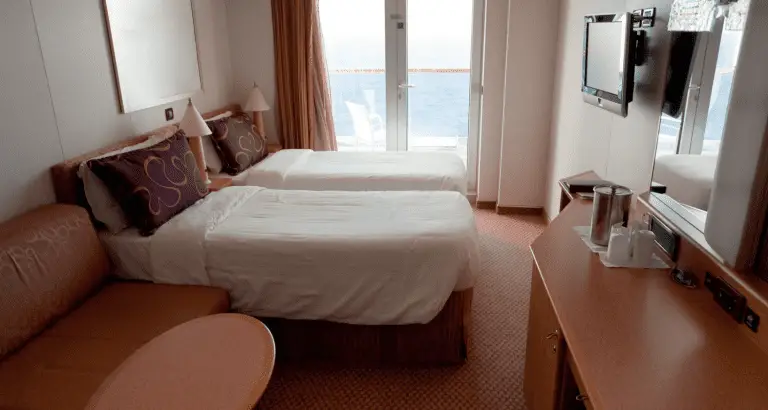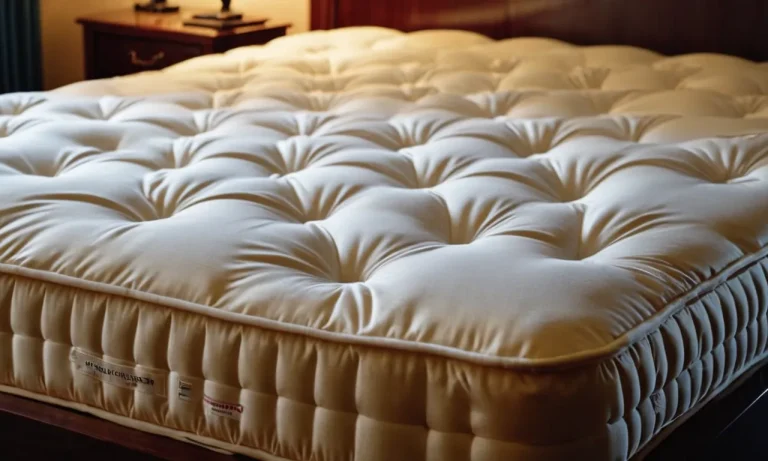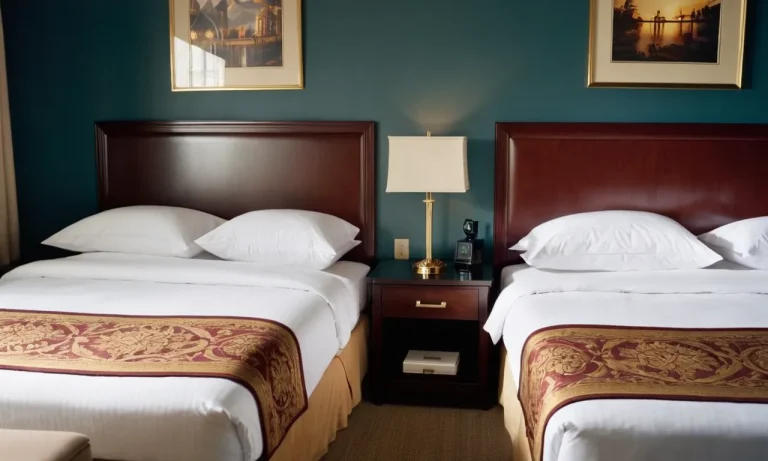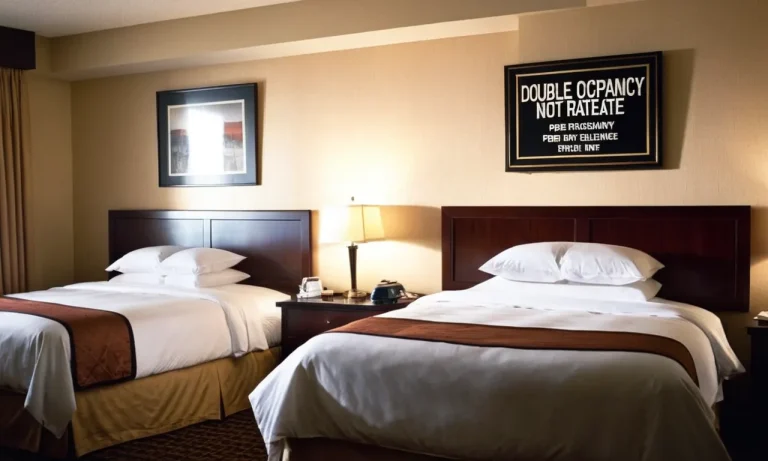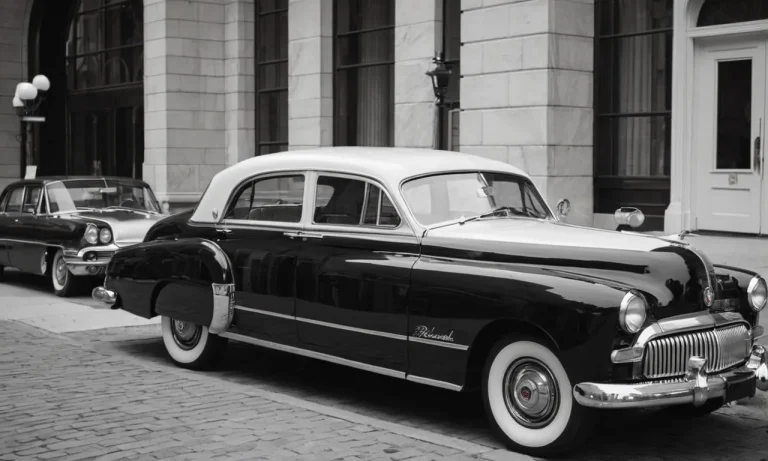Can You Sleep In Your Car Instead Of A Hotel?
Traveling on a budget often means exploring alternative accommodation options, and one that frequently comes to mind is sleeping in your car. While it may seem like a cost-effective solution, there are several factors to consider before embarking on this unconventional sleeping arrangement.
If you’re short on time, here’s a quick answer to your question: Yes, you can sleep in your car instead of a hotel, but it’s essential to understand the legalities, safety concerns, and practical considerations involved.
In this comprehensive article, we’ll delve into the pros and cons of sleeping in your car, legal implications, safety tips, and practical advice to help you make an informed decision. Whether you’re a seasoned road-tripper or a budget-conscious traveler, this guide will provide you with valuable insights to ensure a comfortable and secure experience.
Legal Considerations
Before you decide to sleep in your car, it’s crucial to understand the legal implications. The laws surrounding overnight parking and sleeping in vehicles can vary widely depending on your location. Ignoring these regulations could land you in hot water with fines or even legal trouble. 😬
Local Laws and Regulations
Most cities and towns have specific ordinances that govern where and when you can park and sleep in your vehicle. Some areas may prohibit overnight parking altogether, while others designate certain areas for it.
For example, Seattle’s Vehicle Residency Laws provide guidelines on where and how long you can park and live in your vehicle. Failing to comply with these laws could result in hefty fines or even having your vehicle impounded.
It’s crucial to research the local laws in the area you plan to sleep to avoid any legal headaches. 🚨
Designated Areas for Overnight Parking
Many cities and towns have designated areas where overnight parking and sleeping in vehicles are permitted. These areas may include designated parking lots, rest areas, or even specific streets. For instance, some national parks allow overnight parking in designated areas for a fee.
However, these designated areas often have strict rules and regulations, such as time limits or requirements for self-contained vehicles. Ignoring these rules could lead to fines or even being asked to leave the area.
Private Property vs. Public Spaces
It’s generally illegal to sleep in your car on private property without permission from the owner. This includes parking lots, driveways, and other privately owned areas. Doing so could be considered trespassing and may result in legal consequences.
On the other hand, public spaces like streets and designated parking areas are typically fair game, as long as you follow the local laws and regulations.
Safety Precautions
While sleeping in your car can be a convenient and budget-friendly alternative to hotels, it’s crucial to prioritize your safety. Proper planning and taking the necessary precautions can help mitigate potential risks and ensure a peaceful night’s rest.
Choosing a Secure Location
- Opt for well-lit, public areas such as designated rest stops, truck stops, or parking lots of major retailers. These locations tend to have higher foot traffic and surveillance, reducing the likelihood of criminal activity.
- Avoid secluded or poorly lit areas, as they may attract unwanted attention or compromise your safety.
- Research your destination beforehand and familiarize yourself with the local laws and regulations regarding overnight parking. Some cities or states have specific restrictions or designated areas for car camping.
Securing Your Vehicle
- Lock all doors and roll up the windows before settling in for the night.
- Consider investing in car window shades or curtains to maintain privacy and prevent prying eyes.
- Park in a well-lit area, preferably near the entrance or exit of the parking lot for easy access and visibility.
- Avoid leaving valuables in plain sight, as they may attract potential thieves.
Personal Safety Tips
- Trust your instincts. If a location doesn’t feel safe, it’s better to move on and find an alternative spot.
- Keep a charged cell phone within reach in case you need to call for assistance.
- Consider carrying a personal safety device, such as a whistle or pepper spray, for added protection.
- Avoid opening your car door to strangers, and don’t engage in conversations that make you feel uncomfortable.
Emergency Preparedness
- Familiarize yourself with the emergency services in the area, such as the local police department’s non-emergency number or the nearest hospital.
- Keep a basic emergency kit in your car, including a flashlight, first-aid supplies, and any essential medications.
- Ensure your vehicle is well-maintained and has a sufficient fuel supply to reach your destination or a safe location if needed.
- Consider investing in a roadside assistance plan or membership, which can provide peace of mind and support in case of unexpected breakdowns or emergencies.
By following these safety precautions and exercising common sense, you can reduce potential risks and enjoy a more secure and comfortable experience while sleeping in your car. Remember, your safety should always be the top priority.
If you ever feel unsafe or uncomfortable, don’t hesitate to seek alternative accommodations or assistance.
For more comprehensive information on safe car camping, check out resources like Camping and Wandering or Outdoor Life.
Practical Considerations
Vehicle Suitability
Not all vehicles are created equal when it comes to sleeping in them. Larger vehicles like SUVs, vans, and trucks offer more space and comfort for overnight stays. If you plan to sleep in your car frequently, consider investing in a vehicle with a larger interior or a model designed for camping like the Volkswagen California.
According to a survey by Outdoorsy, 58% of respondents prefer sleeping in a van or truck over a car or SUV.
Comfort and Privacy
Comfort and privacy are key considerations when sleeping in your car. Invest in a good sleeping pad or an inflatable mattress to make your night more comfortable. Tinted windows and curtains can provide privacy, but be mindful of local laws and regulations regarding overnight parking and sleeping in vehicles.
According to a study by the University of Colorado Boulder, 😴 poor sleep can lead to a 31% increase in health-related costs.
Hygiene and Sanitation
Maintaining good hygiene and sanitation can be a challenge when sleeping in your car. Consider packing essentials like wet wipes, hand sanitizer, and a portable toilet or urinal. Look for rest areas, truck stops, or campgrounds with shower facilities along your route.
Don’t forget to pack a trash bag and dispose of waste properly. According to CDC, proper hygiene can prevent the spread of illnesses and infections. 🚿
Meal Preparation and Storage
Eating on the road can be expensive and unhealthy. Consider packing a cooler with healthy snacks and meals that don’t require cooking. If you plan to cook, invest in a portable camping stove and utensils. Don’t forget to pack a water jug and stay hydrated.
Alternative Options
Camping and RV Parks
If you’re looking for a more affordable and adventurous alternative to hotels, camping and RV parks can be a great option. With thousands of campgrounds across the country, you have the freedom to explore new destinations while enjoying the great outdoors.
Many campgrounds offer basic amenities like showers, restrooms, and picnic areas, making them a comfortable choice for those who don’t mind roughing it a bit. According to data from the Outdoorsy RV Camping Statistics, over 13 million households in the US own an RV, and the RV industry contributes over $114 billion to the economy annually.
😎 So why not join the camping craze and save some cash while creating unforgettable memories?
Hostels and Budget Hotels
If you’re on a tight budget but still prefer a roof over your head, hostels and budget hotels can be a fantastic alternative to traditional hotels. Hostels, in particular, offer a unique and social experience where you can meet fellow travelers from around the world.
Many hostels provide basic amenities like shared dorms, communal kitchens, and common areas, all at a fraction of the cost of a hotel room. According to Hostelworld, there are over 16,000 hostels worldwide, with an average nightly rate of just $20.
🤑 Budget hotels, on the other hand, offer more privacy and amenities than hostels, but still at a lower price point than traditional hotels. With a little research, you can find some amazing deals and unique experiences that won’t break the bank.
Couchsurfing and Home Stays
If you’re feeling adventurous and want to truly immerse yourself in the local culture, couchsurfing and home stays can be an incredible alternative to hotels. Couchsurfing is a platform that connects travelers with locals who are willing to host them for free, often offering a couch or spare room in their home.
This not only saves you money but also provides an opportunity to connect with locals and gain a deeper understanding of their way of life. Home stays, on the other hand, involve staying with a local family in their home, usually for a small fee.
This can be an especially enriching experience for those interested in cultural exchange and learning about different traditions and customs. According to Couchsurfing, there are over 14 million members in 200,000 cities worldwide, offering a truly global network of hospitality and cultural exchange.
🌍 So why not step out of your comfort zone and explore these unique alternatives to hotels? You might just make some lifelong friends and unforgettable memories along the way.
Conclusion
Sleeping in your car can be a viable option for budget-conscious travelers, but it requires careful planning and consideration. By understanding the legal implications, prioritizing safety, and addressing practical concerns, you can make an informed decision about whether this unconventional accommodation choice is right for you.
Remember, while sleeping in your car may save you money, it’s essential to weigh the potential risks and discomforts against the benefits. Ultimately, your comfort, safety, and overall travel experience should be the top priorities when exploring alternative accommodation options.
Whether you decide to embrace the adventure of sleeping in your car or opt for more traditional lodging, this comprehensive guide has provided you with the necessary information to make an informed choice that aligns with your travel goals and preferences.

